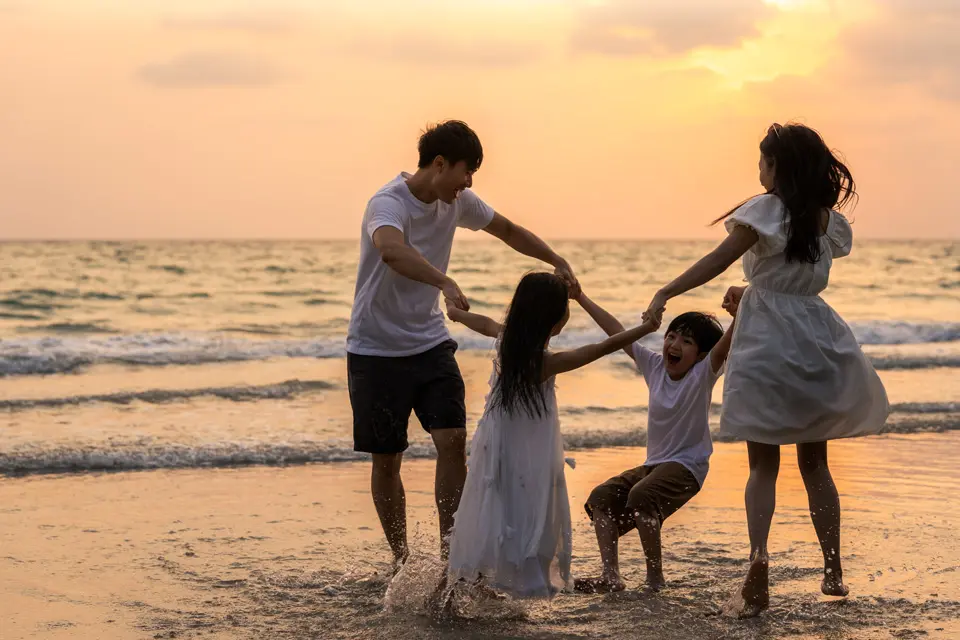Singapore families show high resilience during pandemic
Published: 07 Oct 2024

Credits: www.freepik.com
A new study by the National University of Singapore Yong Loo Lin School of Medicine (NUS Medicine) analysing the resilience of Singaporean families during the COVID-19 pandemic has uncovered significant findings that highlight how most families with young children successfully adapted to the challenges brought by the global crisis.
Led by Prof Jean Yeung Wei-Jun from the Department of Paediatrics and the Human Potential Translational Research Programme at NUS Medicine, and Dr Chen Xuejiao, a researcher at A*STAR Institute for Human Development and Potential, the research team looked at data from 2,818 families before and during the pandemic, and identified six distinct family groups with varying degrees of economic and relational resilience.
The data was drawn from a nationally representative longitudinal study – the Singapore Longitudinal EArly Development Study (SG-LEADS), and collected across two time periods – Wave One in 2018-2019 before the COVID-19 outbreak and Wave Two in 2021 during the second year of the Covid-19 pandemic.
The study, one of the first to examine the economic and relational responses of Singaporean families to the pandemic with a national sample, found that a majority of families showed considerable resilience:
31% of families were classified as “economically secure and relationally strengthened,” having improved family relationships.
28% were deemed “economically secure and relationally stable,” maintaining their pre-pandemic family dynamics.
11% were “economically struggling but relationally improved,” highlighting a significant relational boost despite financial difficulties.
14% were “economically struggling but relationally stable,” enduring economic challenges while preserving family relationships.
However, two groups faced more considerable challenges:
11% of families were “economically secure but relationally deteriorating,” where financial stability coexisted with worsening family dynamics.
4% were classified as “economically and relationally fragile,” suffering from both financial hardship and deteriorating family relationships.
The study emphasised that families with greater socioeconomic resources before the pandemic were more economically resilient, while families with strong relational factors, such as maternal self-efficacy, quality family time, low work-life conflict, and living in supportive neighbourhoods, demonstrated higher relational resilience. Notably, government and community support played a critical role in sustaining both groups of economically struggling families during the crisis.
“Our findings demonstrate that family resilience is not uniform, and it’s shaped by a combination of economic, psychological, and social factors. At the individual level, personal psychological characteristics such as self-efficacy may foster a positive adaptation and growth of the family relations during the pandemic. At the family level, low childcare burdens, and effective couple cooperation, and high quality of family time can aid in maintaining or strengthening family relations during the pandemic. At the community level, living in a safe and cohesive neighbourhood preserves and enhances family well-being when facing environmental stresses. Additionally, external resources such as government support may serve to alleviate the economic hardships and disruptions in family dynamics, especially for economically disadvantaged families,” said Prof Jean Yeung.
This research study was published in a top Sociology journal – the Journal of Marriage and Family, titled COVID-19 experiences and family resilience: A latent class analysis.
Read more in the press release here.

